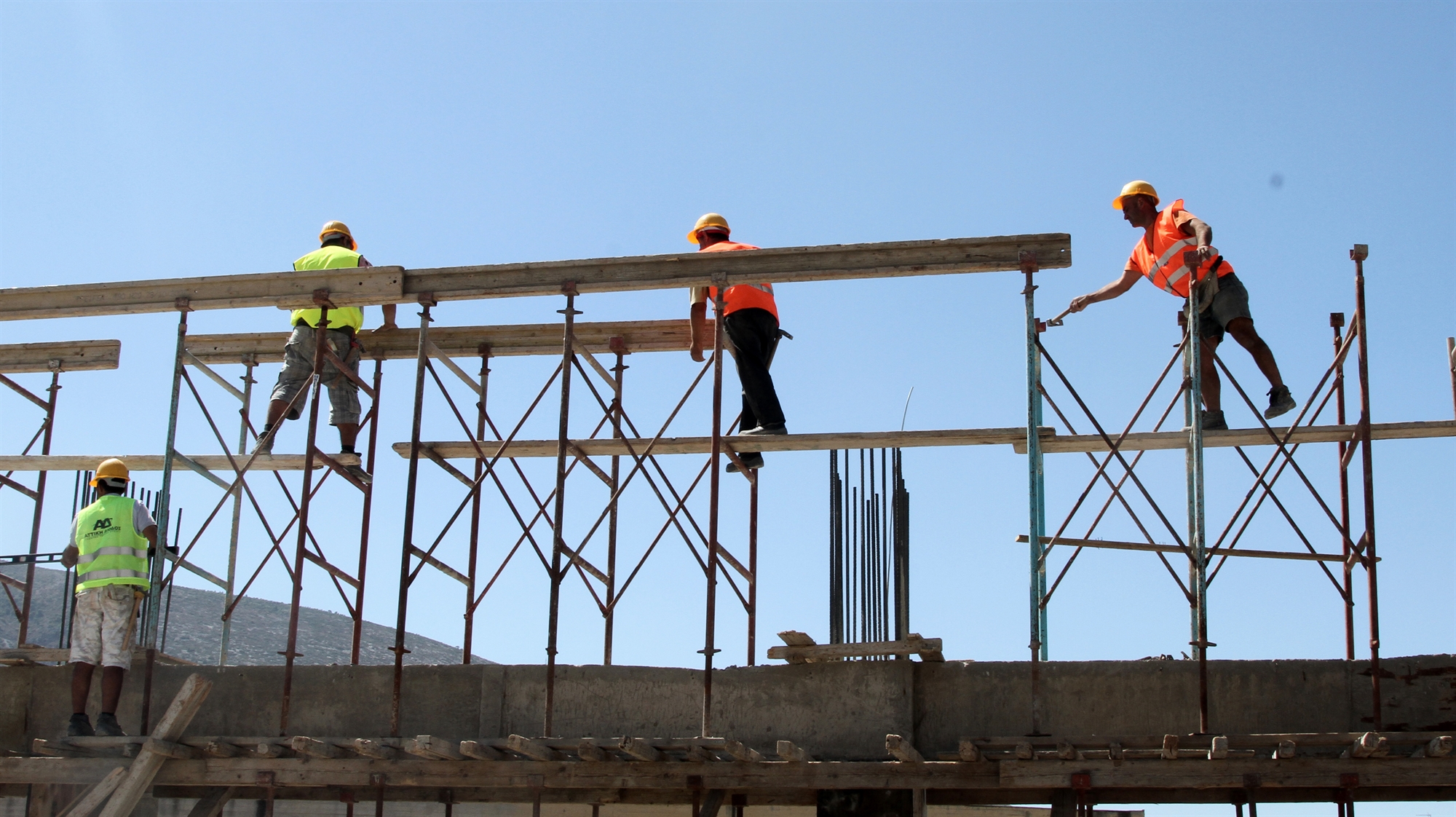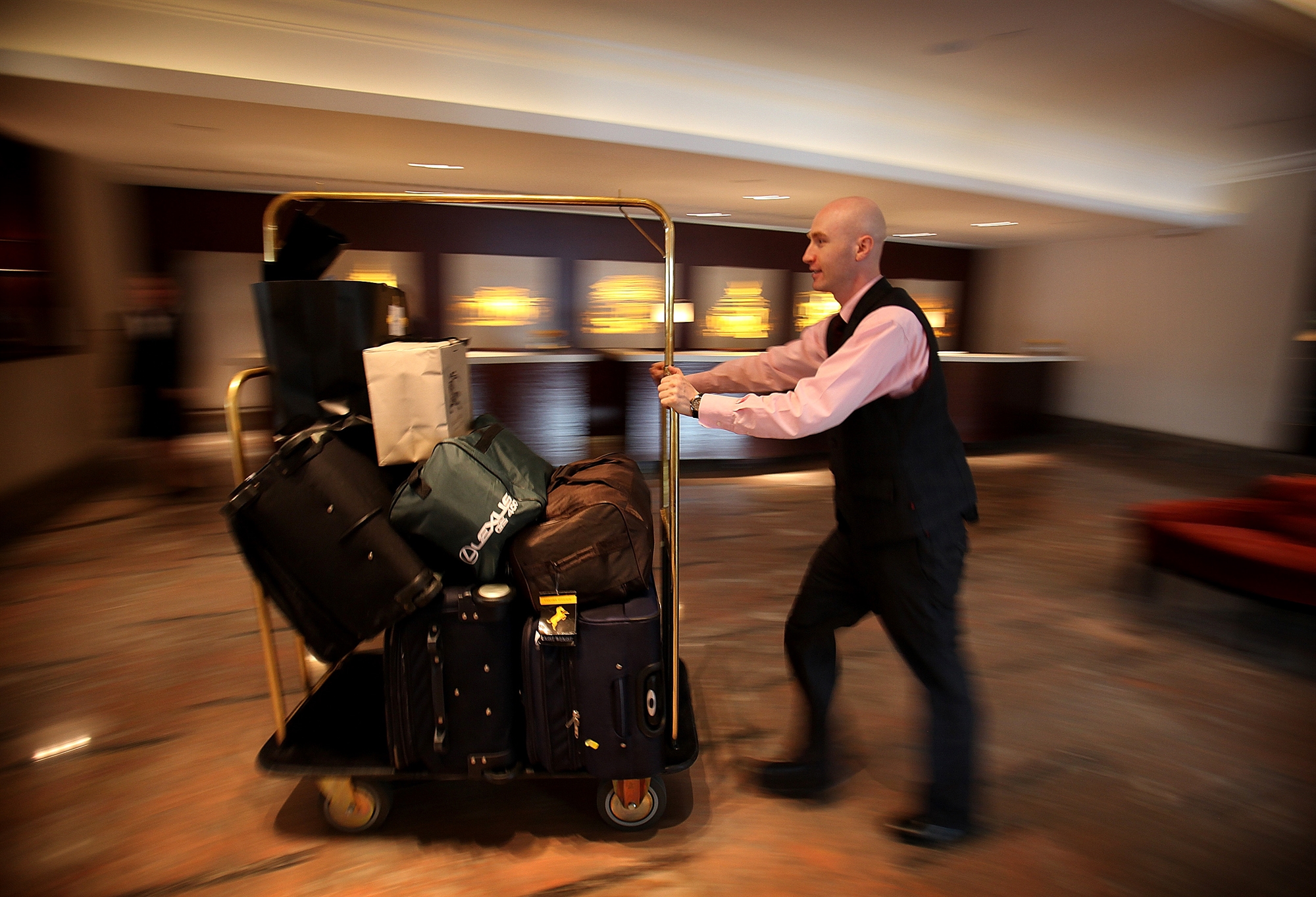
Interstate agreements on “import” employees its construction and companies are asking tourism And her focus. An estimated 200,000 workers are missing. building and in the construction sector and 80,000 in the tourism and food sector. In construction, the hiring of craftsmen is critical to the timely completion of large infrastructure projects funded by European funds.
The building ran out of workers
Nikos X. Rusanoglu
In the context of a long-term delay, dozens of infrastructure projects are expected in the coming years in the territory, at the same time, a significant decline in the volume of new buildings is predicted not due to lack of demand from interested buyers, but due to the lack of working “hands”. Although there is currently no serious shortage of construction sites, some professions are clearly experiencing “losses”, especially if they are skilled craftsmen, either in infrastructure projects or in construction.
Specialties
Machinists, masons, builders and even supervisory engineers, as well as other categories of workers in the industry, are beginning to become a “scarce species” as the number of construction sites in the country increases. “If big construction projects start in Elliniko as well, I foresee big delays in construction in Attica,” says Mr. Dimitris Kapsimalis, President of the Hellenic Builders Federation. According to him, today is a typical construction of an apartment building, which required, incl. 18 months, now it takes at least 24 months, perhaps even more, as there are not enough crews, and their search and recruitment are taking place with significant delays.

A related NTUA study suggests that at least 200,000 additional workers are needed to restore the continuity of construction sites and increase shifts. However, today these people simply do not exist, since the economic immigrants of previous decades are employed in other sectors, such as business. in the service sector (for example, in distribution), while others returned to their homeland, where they also “launch” infrastructure projects worth several tens and even hundreds of billions of euros.
Contractors are hiring unskilled workers from Southeast Asian countries who have come to the country in recent years.
They teach foreigners
According to representatives construction companies, one of the solutions they are implementing is to hire unskilled workers from South East Asia (e.g. Pakistan, Afghanistan) and the Middle East (Syria) who have come to Greece in recent years and train them in more specialized professions. That is, they create new people skilled craftsmen in positions where there is a shortage. Another solution is to enter into an exclusive partnership with specific auto repair shops, so that there are always “hands”. However, such transactions are not always easy, as they require a significant and, above all, continuous flow of projects/buildings.
Accordingly, large production groups offer their workers high wages so that they do not move to other companies. At the same time, they also hire young people, especially when new projects are contracted, and so companies also know that they will have special needs within two or three years. Another solution is to enter into strategic partnerships with subcontractors and small tech companies. To this end, the listed technical companies that had debts to subcontractors are trying to pay them in full and restore relations, as they understand that without these partners it will be especially difficult to meet the deadlines in the projects that they have undertaken or are about to complete. undertake in the future.
Interstate agreements
But even so, of course, it seems that there will not be enough staff to complete all the ongoing projects on time. Construction company executives report that interstate agreements between Greece and other countries will be required in order for foreign workers to come to our country and work with special conditions and wages. These people should also be provided with shelter through temporary accommodation. This solution is often applied in the Middle East (eg United Arab Emirates, Saudi Arabia, Qatar), where there is also a shortage of skilled workers, resulting in people being “imported” from third countries such as India, Pakistan and other Bangladesh.
They want to import 80,000 tourism and catering workers.
Rula Salurou
Employers are asking to import at least 80,000 workers from third countries such as Bangladesh, Pakistan and the Balkans. tourism And subsistenceto cover vacancieswhich, according to them, reached 60,000 during last year’s tourist season alone, while our country is in the process of concluding interstate agreements, similar to the recently adopted Parliament with Egypt, on the entry and residence of foreign citizens in Greece, on the purpose of their employment in agricultural sector.

In total, it is estimated that even more than 100,000 workers from third countries could come to the country. Hellas and to fill the vacancies that exist in hotels, in catering shops, in certain positions in kitchens (for example, lanza), in receptions, as waiters, and also as earthworkers.
Since the domestic economy has largely overcome the COVID-19 pandemic, the number Greek companies who are looking for employees, but face great difficulties in finding suitable personnel. These are companies that operate primarily in tourism industry, catering, retail, IT or even the agricultural sector. According to analysts, this is not a new and not only Greek phenomenon.
The problem of low fertility, which all developed countries face, combined with the brain drain that has intensified during economic crises, creates a reduction in the country’s productive capacity, and the prevailing low wages are a factor exacerbating this phenomenon. At the same time, experts note the shortage of specialists, a problem directly related to the country’s education system, as a result of which the mismatch between supply and demand in the labor market is constantly increasing. Finally, they point out that the effects of the unprecedented pandemic crisis we have experienced and the new labor market trends it has created, such as flexibility in space and working hours, as well as changing mentalities and priorities, are forcing young workers, especially young workers, to be more selective in their choice.
Thus, employers apply to the competent authority Ministry of Labor approval of the “import” of transferred workers for the summer. The High Council of Labor (ASE) was asked to respond to such a request in the previous days in the presence of GSEE President Yannis Panagopoulos and representatives of the tourism and food federation. Workers’ representatives protested strongly, arguing that 80,000 foreign workers would change the labor landscape in terms of both labor rights and wages. Thus, the ASE, after the objection presented by the GSEE, declared itself incompetent to resolve this issue, which was referred to the National Labor Committee, a body sitting under the chairmanship of the Prime Minister, created in 2015 and until today has not been activated.
It should be noted that in hotels alone, the shortage of workers in 2021 exceeded 53,000 people, and in 2022 it reached 60,000 people.
Egyptians in the fields
At the same time, the Greek Parliament recently approved a pilot agreement with the Egyptian government, under which Greek employers, mainly in the agricultural sector, can transfer land workers from Egypt annually to meet their needs in the primary sector. During the first year of the agreement, the number of Egyptian workers could rise to 5,000.
This process involves consultations between the competent national authorities to determine the needs and the number of jobs in the agricultural economy that can be filled annually by Egyptian workers. This process will be completed no later than January 31 of each year.
Source: Kathimerini
Lori Barajas is an accomplished journalist, known for her insightful and thought-provoking writing on economy. She currently works as a writer at 247 news reel. With a passion for understanding the economy, Lori’s writing delves deep into the financial issues that matter most, providing readers with a unique perspective on current events.